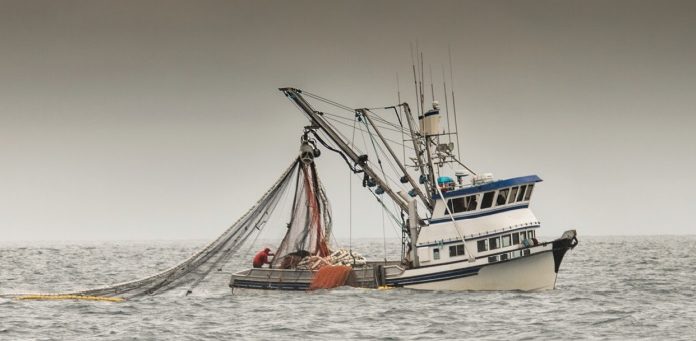Despite its heavily-promoted ‘New South-Bound Policy’, which aims to strengthen cultural and economic relationships with Southeast Asia, the Taiwanese government fails to protect migrant fishers – coming mainly from Southeast Asian countries – against human rights abuses, because of the lack of appropriate laws, transparency and labour inspection measures, the NGO coalition ‘Human Rights for Migrant Fishers’ has noted.
Fishing is a major industry in Taiwan with an export value of about US$2 billion per annum over the recent years. In 2017, Taiwan passed the Labor Standards Act, intended to minimize labor violations within Taiwan, however, the state’s earlier legislature had already voted that distant fishing vessels no longer fell under Taiwanese jurisdiction.
The remote nature of fishing makes fishers vulnerable to abuse. The collapse of global fish stocks also creates pressures, with some vessel owners turning to exploitation and illegal fishing as catches and profits fall.
Migrant fishers are especially at risk. With a lack of transparency in the fishing sector and no appropriate government measures in place to ensure their rights and inspect working conditions, migrant fishers on Taiwanese vessels can and do fall victim to debt-bondage, forced labour, human trafficking and other serious human rights abuses. Despite its stated aim of achieving close cultural and economic relationships with Southeast Asian countries, the Taiwanese government is reluctant to provide migrant fishers with better protection and a safer work environment.
In response, the Human Rights for Migrant Fishers coalition – comprising the Environmental Justice Foundation (EJF), Greenpeace, the Presbyterian Church in Taiwan Seamen and Fishermen’s Service Center, Serve the People Association, the Taiwan International Workers’ Association, Taiwan Association for Human Rights and the Yilan Migrant Fishermen Union – issued a statement with clear actions that the Taiwan government must take to protect migrant fishers and live up to the ambitions of its own policies. The coalition is calling for the Taiwanese government to:
- Ratify the International Labour Organization’s Work in Fishing Convention 188 to ensure the fair treatment of all fishers.
- Apply the national Labour Standards Act to all fishers and ensure the Ministry of Labour is the authority responsible for all labour affairs, working closely with the Fisheries Agency to ensure it has regular access to vessels in Taiwan and across the world.
- Invest sufficient resources to ensure labour inspections are timely and accurately conducted;
- Provide training for prosecutors and judges to increase the prosecution and conviction of human traffickers or human right abusers;
- Develop a complaint channel so fishers can receive help while at sea;
- Put an end to the poorly regulated channels used by Taiwanese vessel operators and owners to recruit overseas workers. Protecting migrant workers on fishing vessels is not only the right thing to do, it will improve Taiwan’s international reputation and help eradicate illegal fishing. Taiwan must seize this opportunity to show leadership in the region.



























































